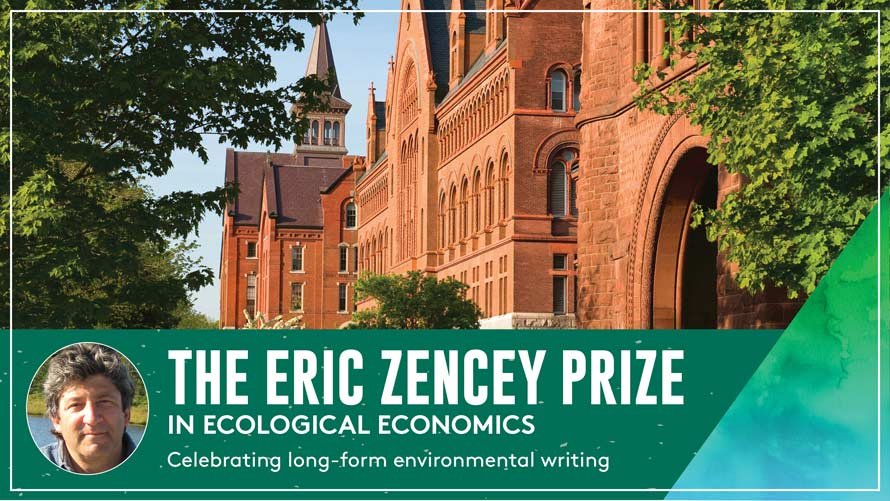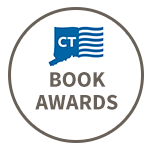About Mill Town
I grew up in the small, rural town of Mexico, Maine, where for over 100 years the community orbited around a paper mill that provided jobs for nearly everyone in town, including three generations of my family. I had a happy childhood, but years after I moved away, I realized the price I paid for that childhood. The price everyone paid. The mill, while providing the social, cultural, and economic cohesion for the community, also contributed to its demise. This is a book about environmental and family legacies.
For a quick look, my book trailer HERE. Also, you can find links of full reviews, other press, interviews, etc. over on my NEWS page, and if you want to watch a previously recorded talk, you can find those videos HERE.
Paper
Mill Town is printed on paper bleached without chlorine gas, chlorine dioxide, or any other chlorine-based bleaching agent; ask your workplace, your school, your publisher to find and use the same.
awards, praise, recognition
AWARDED a special Inge Feltrinelli Prize, dedicated to women writers who have used their voices in defense of human rights. Given by the Giangiacomo Feltrinelli Foundation
Runner-up Eric Zency Prize for Ecological Economics, 2022. Named after pioneering scholar Eric Zencey (1954-2019), the prize recognizes the best current affairs book or long-form journalism that advances public understanding of real-world environmental challenges using the principles of ecological economics, a field that explores the relationships between economics and earth’s limited natural resources.
Winner Rachel Carson Environment Book Award, Society of Environmental Journalists, 2021.
Finalist National Book Critics Circle Leonard Prize for best first book in any genre, 2021.
Winner Maine Literary Awards, nonfiction, 2021.
Finalist New England Independent Booksellers Association prize for nonfiction, 2021.
Finalist, Connecticut Book Awards, 2021.
Ranging between family anecdotes and scientific research, Mill Town is a book-research and memoir together, reflecting with rigor and passion on the life of a small community. This text is subject to the special mention of 'the sharpest look at the contradictions of the contemporary' because it urges us to raise awareness among the powers – political and economic – to add a theme to the global public agenda: the protection of health and the environment, while in the awareness that the ecological transition must be fair, capable of defending work and protecting work and economic well-being - Inge Feltrinelli Prize Jury
Kerri Arsenault's Mill Town is the book of a lifetime; a deep-drilling, quick-moving, heartbreaking story of one working-class family in one working town, which is also the much bigger American story of how harm settles on and in some of those who love the country most. Scathing and tender, it is written in a clear-running prose that lifts often into poetry, but comes down hard when it must. Through it all runs the river of Mill Town: sluggish, ancient, dangerous, freighted with America's sins. This is a book about residues and legacies; I know that Mill Town will stay with me for years to come. Robert Macfarlane, author of Underland
Kerri Arsenault grew up in a small town many people in town believed in the mill, they adored it, they fought its sale, and then they have worried about its departure. Why did they stay? How could they go? This profoundly important book reports on the way so many parts of America are killing the people who love them. Tender, angry, full of respect and bewilderment, it is a complex love letter to a hometown. It’s also a powerful glimpse of how corporate power, small town pride, and death are entwined in America: a vivid insight to the unbuilding of an American dream, this will be one of the major nonfiction books of a year in which the debate over what America is will rage. John Freeman, author of Dictionary of the Undoing and Tales of Two Planets and editor of Freeman’s
The story begins with the exciting news of jobs at a new mill in the small town of Mexico, Maine. But it ends—as stories of extractive industries often do—with a sorrowful legacy of contaminated waters, illness and loss. With fiercely poetic pen, Arsenault gives us a brilliant personal account of a heart-breaking national tale. Arlie Russell Hochschild, author of Strangers in Their Own Land: Anger and Mourning on the American Right
In Mill Town, Kerri Arsenault probes deeply, searchingly, into webs of family and community, history and science, power and commerce and the price of loyalty to create what could be called an Our Town for the 21st century, updated and expanded to account for ecological horror. What kind of life have we made for ourselves when the very thing that sustains us also kills us? Arsenault's relentless, unsparing exploration goes to the heart of American life, and I can think of no book that's more relevant to this moment in time than Mill Town. Ben Fountain, author of Billy Lynn’s Long Halftime Walk
Mill Town is a powerful, blistering, devastating book. Kerri Arsenault is both a graceful writer and a grieving daughter in search of answers and ultimately, justice. In telling the story of the town where generations of her family have lived and died, she raises important and timely questions. Dani Shapiro, author of Inheritance and Signal Fires
Kerri Arsenault’s pursuit of truth is as compassionate as it is relentless. The result, her book, is tender, enthralling, and, ultimately, devastating. Jonathan Lethem, author of Motherless Brooklyn and The Arrest
Kerri Arsenault's Mill Town is a tender howl about the graveyard of industry. Her hometown in Maine was despoiled by the very paper mill that built it. Mill Town should spark conversations and action among readers concerned about environmental hazards in their own locales. This fierce and impeccably researched work really got my blood boiling about the plunder mechanism of capitalism and its blow against life. Emily Raboteau, author of Searching for Zion
Kerri Arsenault’s Mill Town is about the relentless, slow poisoning of her family, neighbors and home town of Mexico, Maine, by a filthy, dangerous industry (paper manufacturing). By something not exactly chance, it also happens to be the story of my own home town of Gloversville, New York, where another industry (leather tanning) did the same thing. But it’s also about the better, more prosperous American life those industries afforded us before we fell ill, as well as the Devil’s bargain that made all this possible, maybe even inevitable. Mill Town is for anyone who’s ever wondered about the Calvinistic calculus whereby the elect become truly wealthy while the damned (read: poor, dark-skinned, newly arrived) find early graves. Richard Russo, author of Empire Falls and Elsewhere
In Mill Town, Kerri Arsenault has managed a literary hat track, combining humanity, science, and capitalism, and the price paid not only by her own family in a single state, but across generations, industries, and geographies. She has laid out, in elegant prose and harrowing reportage, the price we may all pay, and in this, she has managed to create at once both a cautionary tale and a literary treasure. Rachel Louise Snyder, author of the award-winning No Visible Bruises: What We Don’t Know About Domestic Violence Can Kill Us and the novel What We’ve Lost is Nothing
It's the startled, zig-zag urgency of having gone to find the dead and finding Death instead. Ten years and Arsenault’s hand keeps moving this way and that from all points across the mystery and the love as across the paper on some tombstone for a rubbing. Slowly, beautifully, terribly something comes to the surface. David Searcy, author of Shame and Wonder
Kerri Arsenault's Mill Town tells the story of the community she grew up in, her extended family of hardworking Catholic Franco-Americans in a small mill town in Maine, but it’s also a sweeping, brutal expose of American corporations’ ruining natural resources, poisoning the environment, endangering the health and safety of the working class, and hiding and denying their crimes. This book is full of love and sadness. It’s also breathtakingly well-researched, wide-ranging, cogently angry, brilliantly written, harrowing, heartbreaking, urgent, and timely. Everyone should read it. I can’t forget it. Kate Christensen, author of The Great Man
Kirkus starred review: “In this masterful debut, the author creates a crisp, eloquent hybrid of atmospheric memoir and searing exposé. She writes urgently about the dire effects the mill’s toxic legacy had on Mexico’s residents and the area’s ecology while evocatively mining the emotional landscape of caretaking for aging parents and rediscovering the roots of her childhood. Bittersweet memories and a long-buried atrocity combine for a heartfelt, unflinching, striking narrative combination.”
Publisher’s Weekly starred review: A “powerful investigative memoir… about a soul-crushing portrait of a place….This moving and insightful memoir reminds readers that returning home—’the heart of human identity’—is capable of causing great joy and profound disappointment.”
This memoir-slash-history tracks the rise and mostly decline of Mexico, Maine, a small mill town on the Androscoggin River that has been the home of the author’s family for generations. Arsenault writes nonfiction with the density and beauty of poetry, in this telling of the costs and tolls (environmental, physical, cultural, medical) of industrialization and its aftermath. Mark Lamster, architecture critic, Dallas Morning News and author of The Man in the Glass House, for the Nasher Sculpture Center.
Maremosso Magazine (March 14, 2023)
La Stampa (January 26, 2023)
Chronicles of Naples and Caserta (08 March 2022)
Convenzionali (February 20, 2022)
The Manifesto (January 20, 2022)
La Repubblica (October 29, 2021)
Huffington Post (October 26, 2021)
Il Sole 24 Ore (October 12, 2021)
University of Missouri ONE READ selection, 2022-2023
Finalist, New England Society Book Awards, 2021
Selection, Maine Humanities Council statewide adult summer reading program in collaboration with the Maine State Library
Bestseller, American Bookseller Association
Bestseller, New England Independent Booksellers Association
New York Times Editors’ Choice
Kirkus Reviews Best Memoirs of 2020
Chicago Tribune’s “Top 10 books of 2020”
Publisher’s Weekly “Best Books of 2020”
Publisher’s Weekly “Top 10 books for Politics & Current Events”, 2020
Barnes & Noble’s “Essential Election Reading”, 2020
Oprah magazine’s “Best Books of Fall 2020”
Newsweek’s “Fall Must-Read Fall Nonfiction”
People magazine’s “Best New Books”, 2020
Indie Next Pick, 2020
Amazon Editors’ pick “Best Biographies and Memoirs 2020”
Literary Hub’s favorite books of 2020
Barnes & Noble’s “Best Social Science Books 2020”
Literary Hub’s “September's Best Reviewed Memoirs and Biographies”, 2020
Junior Library Guild selection, 2021
Mr. Porter’s “Ultimate Guide To Labor Day Weekend 2020”
BuzzFeed’s “Twenty-one books to get excited about this Fall”, 2020
Literary Hub’s “Most Anticipated Books of 2020”
The Revelator’s “New Environmental Books to Motivate Action”, 2020
Goodreads’ “September 2020 top History/Biography Pick”
The Millions’ “Most Anticipated Books”, 2020
Goodreads “Six Great Books of Fall 2020”
National Review “Hot 5 Books”, 2020
Alma’s “Favorite Books for Fall 2020”








